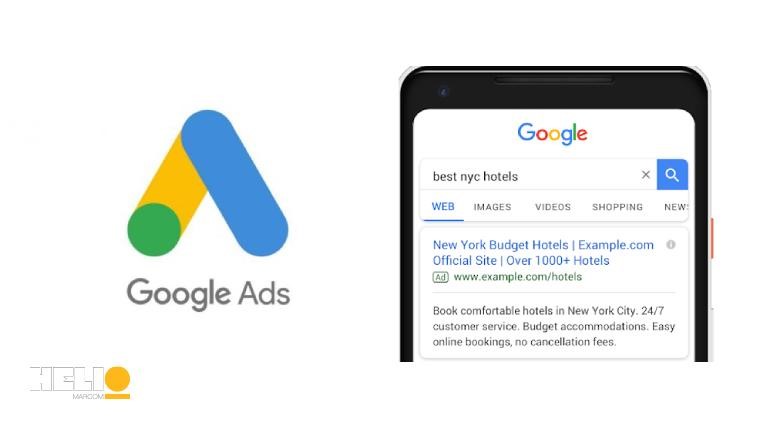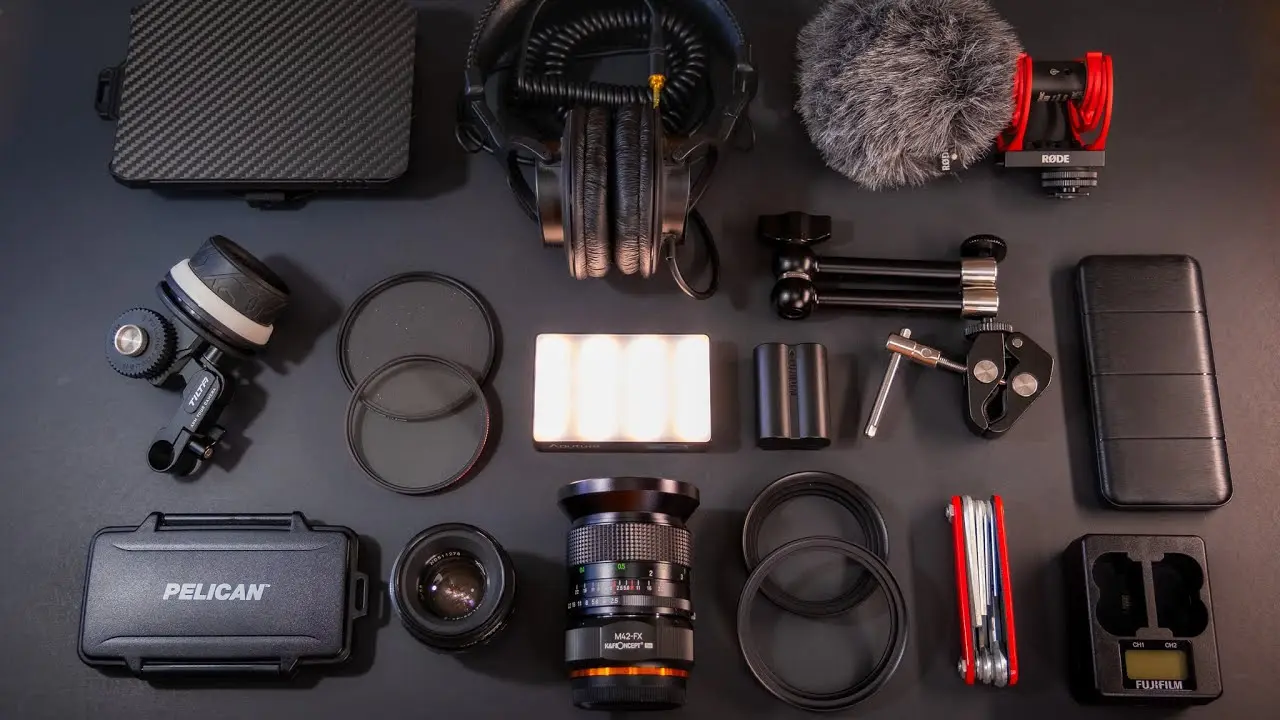Search engine advertising is a crucial element of digital marketing strategies, enabling businesses to connect with potential customers actively searching for their products or services. This targeted marketing approach is effective and measurable, facilitating the precise evaluation and optimization of campaigns. Mastering the various types and examples of search ads is essential for developing successful marketing efforts that boost traffic and conversions. This guide from Helio Advertising will help you grasp the importance and functionality of search ads.
What Are Search Ads?
In the fast-paced digital marketing landscape, search ads stand as a cornerstone for businesses striving to capture the attention of potential customers at the moment of intent. Whether you’re a seasoned digital marketer, a small business owner, an SEO enthusiast, or part of an established brand or start-up, understanding the nuances of search ads can significantly enhance your marketing strategy.
Search ads are paid advertisements that appear on search engine results pages (SERPs) when users enter specific keywords. These ads are designed to align closely with the user’s search intent, providing a direct pathway for potential customers to engage with your business.
Search Ads are paid advertisements on search engine results pages (SERPs). They are designed to match user queries with relevant ads.
Characteristics and Examples of a Search Ad
Search ads typically feature a headline, a display URL, and a brief description. They appear at the top or bottom of SERPs and are marked with an “Ad” label to distinguish them from organic search results. For example, searching for “best running shoes” might yield an ad from a leading sportswear brand, prominently positioned at the top of the page.
Components and Ad Extensions
A standard search ad consists of several key components:
- Headline: Captures attention and includes the primary keyword.
- Display URL: Shows the web address of the landing page.
- Description: Provides additional information and a call to action.
Ad extensions enhance the value of search ads by adding extra information, such as:
- Sitelink Extensions: Additional links to specific pages on your website.
- Callout Extensions: Highlight unique selling points or offers.
- Call Extensions: Direct phone numbers for immediate contact.
Factors Influencing Ad Appearance and Cost
Several factors influence the appearance and cost of search ads:
- Bid Amount: The maximum amount you’re willing to pay per click.
- Quality Score: A metric derived from the relevance and quality of your ads, keywords, and landing pages.
- Ad Rank: Calculated using your bid amount and Quality Score.
Overview of Paid Ads Online
Paid ads encompass various formats, each with distinct characteristics and purposes. Search ads and display ads are two primary types of paid ads. While search ads target users actively searching for information, display ads appear on websites within the Google Display Network, targeting users based on browsing behavior and interests.
Traditional PPC – Search Engine Text Ad
Traditional Pay-Per-Click (PPC) advertising involves creating text ads that appear on search engines like Google. These ads are triggered by user queries, ensuring they reach a relevant audience actively seeking information or solutions related to your business offerings.
Types of Search Ads: Exploring Text, Shopping, and Dynamic Search Ads
Understanding the different types of search ads can help tailor your strategies to specific business goals and audience needs.
1. Text Ads
Text ads are the most common type of search ad, consisting of a headline, URL, and description. They are straightforward and effective for driving traffic to your website. For example, a well-crafted text ad for a local bakery might read:
Headline: “Freshly Baked Goods – Order Now!”
Description: “Discover our delicious range of pastries and breads. Order online for home delivery!”
2. Shopping Ads
Shopping ads are particularly effective for e-commerce businesses. These ads directly showcase product images, prices, and merchant information on the SERP, providing a visual and informative appeal. For instance, searching for “wireless headphones” could display shopping ads with images from multiple retailers, enabling quick comparison and purchase decisions.
3. Dynamic Search Ads
Dynamic search ads automatically generate headlines and landing pages based on your website’s content. These ads are ideal for businesses with extensive inventories or frequently changing product lines, as they ensure relevant ads are always displayed without manual updates.

The Role of Keywords in Search Ads
Keywords are the backbone of search ads, connecting your ads to users’ search queries.
1. Keyword Selection
Effective keyword selection involves identifying terms and phrases that potential customers will likely use. Tools like Google Keyword Planner can help you discover high-traffic, relevant keywords for your industry.
Choosing the right keywords is crucial. Use tools like Google Keyword Planner to find relevant keywords with high search volume and low competition.
2. Keyword Research and Match Types
Keyword research helps refine your list of target keywords based on search volume, competition, and relevance. Match types determine how closely a user’s search query must match your keyword for your ad to appear:
- Broad Match: The ad appears for searches that include keyword variations.
- Phrase Match: The ad appears for searches that contain the exact phrase or close variations.
- Exact Match: The ad appears only for searches that match the keyword.
3. Optimizing Keyword Strategy
Regularly reviewing and optimizing your keyword strategy ensures your ads remain relevant and cost-effective. Utilize negative keywords to exclude irrelevant searches and focus your budget on high-performing terms.
Review and refine your keyword list regularly to ensure it aligns with your campaign goals and reduces wasted time on irrelevant searches.
Ad Rank and Quality Score: Factors for Successful Ads
Ad Rank and Quality Score are critical metrics influencing your ad’s placement and cost-per-click (CPC).
Understanding Ad Rank
Ad Rank determines your ad’s position on the SERP, calculated based on your bid amount, Quality Score, and the competitive landscape.
Enhancing Quality Score
Three main components influence Quality Score:
- Ad Relevance: How closely your ad matches the user’s search intent.
- Expected Click-Through Rate (CTR): The likelihood of users clicking your ad.
- Landing Page Experience: The relevance and quality of your landing page.
Improving these factors can boost your Quality Score, leading to better ad placements and lower CPC.
Best Practices for Writing Effective Search Ads
Crafting compelling search ads is both an art and a science. Here are some best practices to guide you:
Ad Copywriting Tips
- Be Clear and Concise: Use straightforward language that clearly conveys your message.
- Include Keywords: Integrate primary keywords naturally into your headline and description.
- Highlight Benefits: Focus on how your product or service solves a problem or meets a need.
- Incorporate a Strong CTA: Encourage users to take action with phrases like “Shop Now,” “Learn More,” or “Get Started.”
Utilizing Ad Extensions
Ad extensions can significantly enhance the visibility and effectiveness of your search ads. For example:
- Sitelink Extensions: Direct users to pages like “Contact Us” or “Special Offers.”
- Callout Extensions: Emphasize unique features, like “Free Shipping” or “24/7 Support.”
Examples of Successful Search Ad Campaigns
Examining successful search ad campaigns can provide valuable insights and inspiration for your efforts.
Case Studies
Some successful case studies are put in the table below.
| Case studies | Objectives, strategies and outcomes |
| McDonald’s – Geo-Targeted Mobile Campaign | ● Objective: Increase in-store visits during breakfast hours. ● Strategy: Utilized geo-targeted search ads to reach potential customers within a 5-mile radius of participating locations. ● Outcome: Achieved a 7% increase in in-store visits during the campaign period and a significant boost in breakfast sales.
|
| Airbnb – Dynamic Search Ads | ● Objective: Drive bookings for diverse accommodation listings worldwide. ● Strategy: Implemented dynamic search ads to automatically generate relevant ads based on users’ search queries and website content. ● Outcome: Enhanced ad relevancy and expanded reach, resulting in a 20% increase in bookings and reduced cost-per-acquisition (CPA). |
| eBay – Broad Match Keyword Expansion
| ● Objective: Increase visibility and sales for diverse product categories. ● Strategy: Leveraged broad match keywords to capture a wider range of user queries and continuously optimized ad copy based on real-time performance data. ● Outcome: Saw a 25% lift in click-through rates (CTR) and a steady 15% rise in overall sales, demonstrating the efficacy of broad match keyword utilization. |
| Nike – Enhanced CPC Bidding | ● Objective: Maximize return on ad spend (ROAS) for the launch of their latest product line. ● Strategy: Used Enhanced Cost-Per-Click (CPC) bidding to automatically adjust bids for clicks more likely to lead to conversions. ● Outcome: Achieved a 30% higher conversion rate and a substantial increase in ROAS, affirming the value of intelligent bidding strategies. |
By studying these successful campaigns, businesses can understand the importance of strategic implementation and optimization in achieving their marketing objectives.
Take Your Business to the Next Level with Helio
In today’s competitive digital landscape, leveraging search ads effectively can be a game-changer for your business. You can create impactful campaigns that drive results by understanding the different types of search ads, the role of keywords, and the importance of Ad Rank and Quality Score.
Ready to elevate your digital marketing strategy? Partner with Helio’s digital marketing department and take your business to new heights. Contact us today for a consultation and discover how we can help you achieve your goals.





